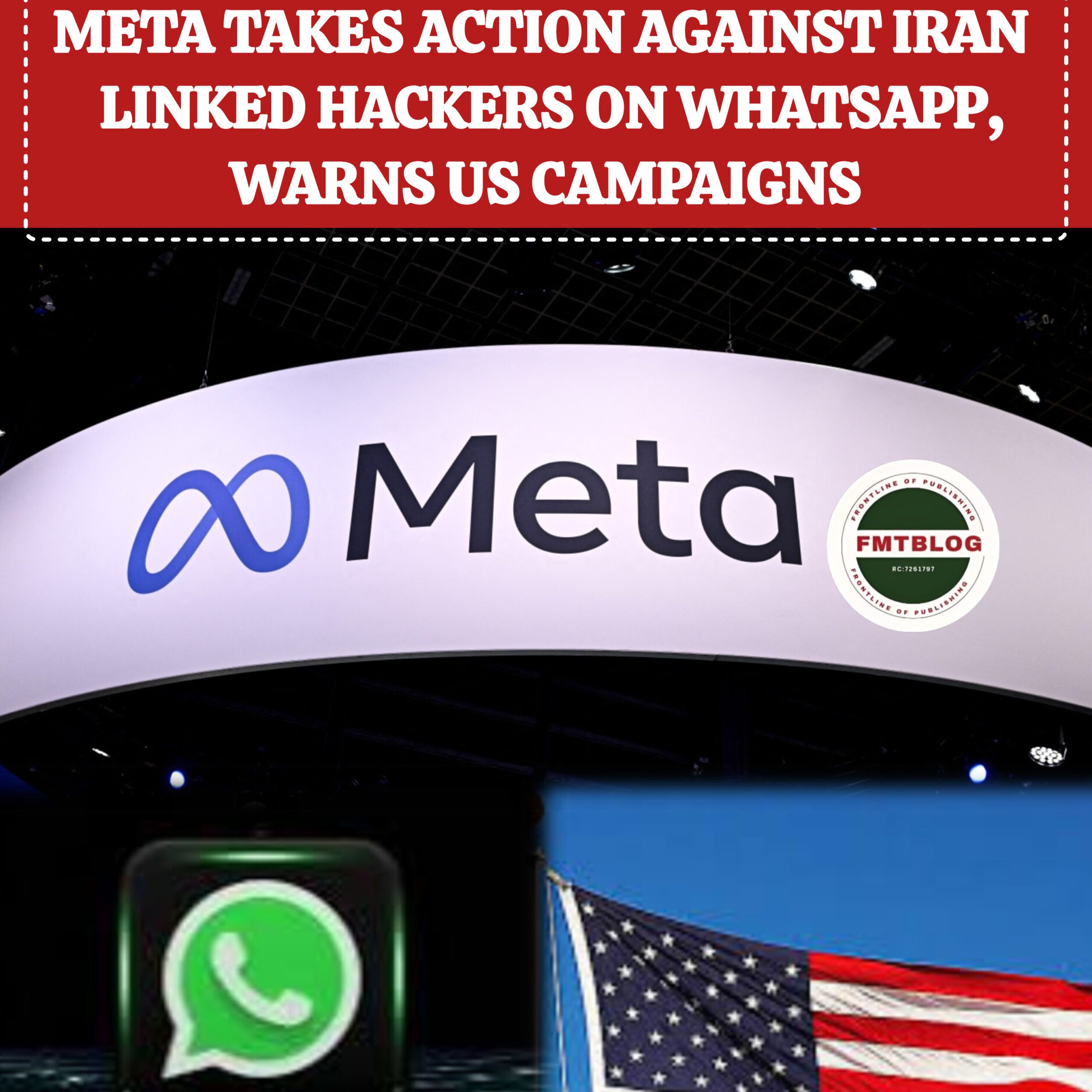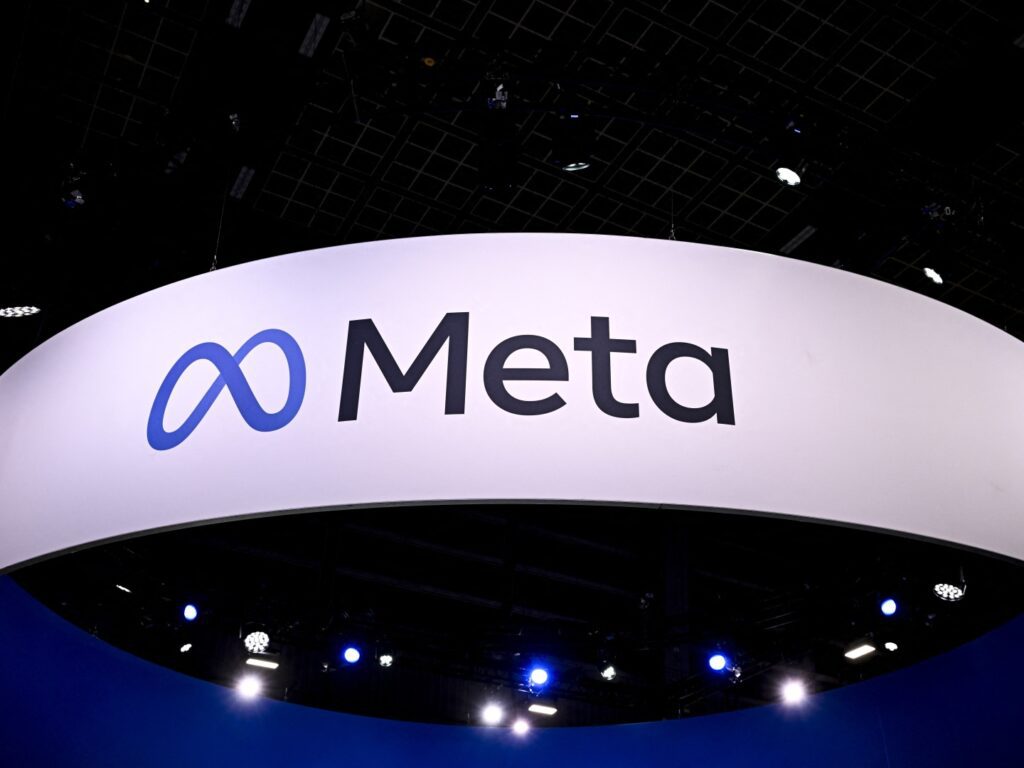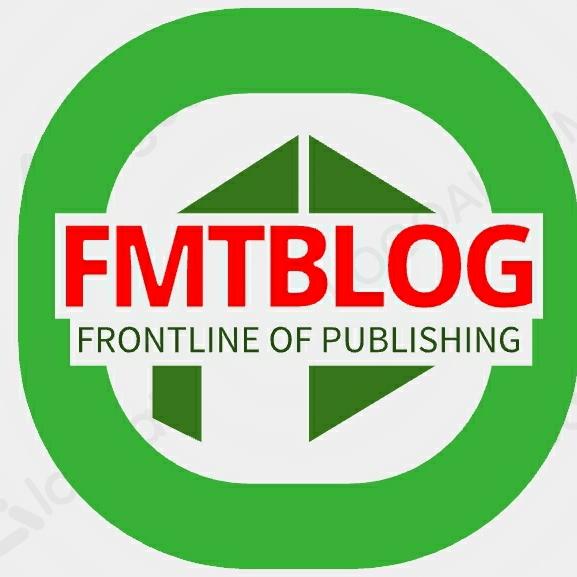
Meta issued a warning to US presidential campaigns on Friday, advising them to exercise caution in light of the discovery of an Iran-linked hacking attempt utilising the WhatsApp messaging service.

This announcement joins a series of similar disclosures from prominent technology companies regarding hacking threats in the lead-up to the November election between Vice President Kamala Harris and former President Donald Trump. Notably, Google and Microsoft have previously reported uncovering comparable attempts attributed to Iran.

According to Meta, WhatsApp accounts associated with an Iranian “threat actor” engaged in sending deceptive messages posing as technical support representatives from AOL, Google, Yahoo, or Microsoft.
JOIN THE CONVERSATION– → Telegram | X/Twitter | Facebook | WhatsApp |WhatsApp Channel |Mobile App|Instagram
“This malicious activity originated in Iran and attempted to target individuals in Israel, Palestine, Iran, the United States, and the United Kingdom,” Meta stated in a formal announcement. “This endeavor appeared to focus on political and diplomatic officials, as well as other public figures, including some associated with the administrations of President Joe Biden and former President Donald Trump.”
Accounts involved in what appeared to be “social engineering” — deceiving individuals into granting access to networks or critical data — were promptly blocked, as confirmed by Meta.
“Given the heightened threat landscape in anticipation of the upcoming US election, we proactively shared pertinent information regarding this malicious activity with law enforcement agencies and the presidential campaigns, urging them to exercise heightened vigilance against potential adversarial targeting,” Meta stated.
It is noteworthy that on Monday, three prominent US intelligence and security agencies publicly attributed a recent hacking incident targeting Trump’s presidential campaign to Iran, further accusing Tehran of harbouring intentions to influence the 2024 election.
The statement confirmed a Trump campaign claim from earlier this month, which came after internal communications and a dossier on running mate J.D. Vance were shared with a US media outlet.
Harris’s campaign said on August 13 that it too had been targeted by foreign hackers, but did not give an indication of which country was believed to be behind the attempt. OpenAI last week said it took down a cluster of ChatGPT accounts being used to create content for a “covert Iranian influence operation.”
The operation used ChatGPT to create articles and short commentary, which was then shared on social media platforms or websites, according to OpenAI. Main topics were the conflict in Gaza, Israel’s presence at the Olympic Games, and the US presidential election.
“They interspersed their political content with comments about fashion and beauty, possibly to appear more authentic or in an attempt to build a following,” OpenAI said.
It has come to our attention that groups affiliated with the Iranian government have engaged in preparatory measures to launch influence campaigns centered around trending election-related subjects.
These campaigns appear to be designed to generate controversy or influence voters, particularly in crucial swing states. This information was shared by Clint Watts, the esteemed General Manager of Microsoft Threat.
Earlier this year, Director of National Intelligence Avril Haines issued a warning regarding Iran’s escalating assertiveness in its influence endeavors. Their objective is to foment discord and undermine the integrity of democratic institutions, replicating their actions in previous election cycles.
JOIN THE CONVERSATION– → Telegram | X/Twitter | Facebook | WhatsApp |WhatsApp Channel |Mobile App|Instagram
SOURCE- AFP



